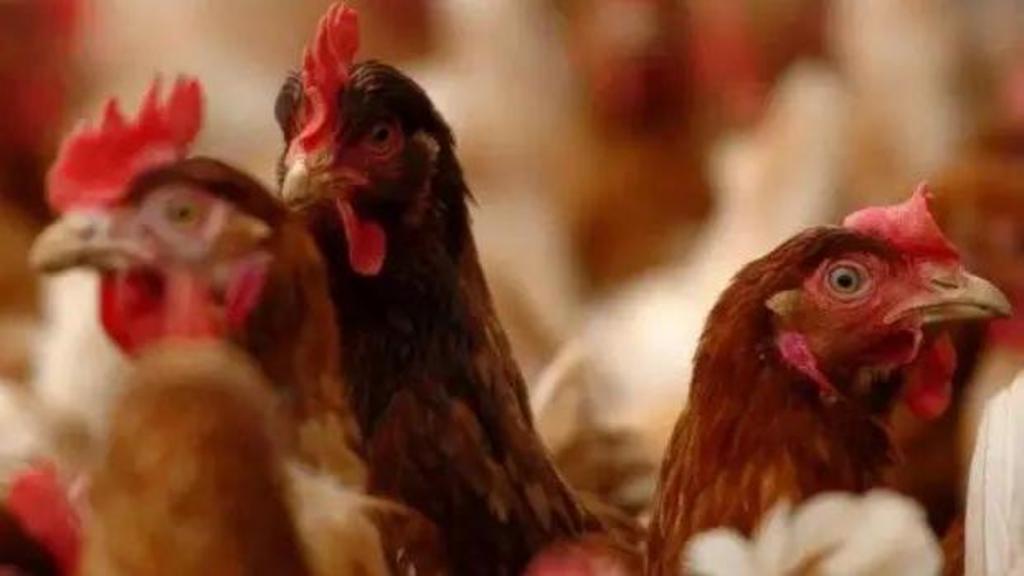The bird flu virus currently affecting poultry farms across the UK may be the most infectious strain to date, according to a warning from the government’s former leading expert in avian virology.
Professor Ian Brown of the Pirbright Institute, formerly director of science at the Animal and Plant Health Agency (APHA), advised farmers to “prepare for the worst” amid the escalating outbreak.
Following the implementation of a mandatory housing order in England on Thursday, a free-range egg producer in Wiltshire expressed her concerns to the BBC, stating that while confining her 32,000 hens was regrettable, an outbreak would be “disastrous”.
The government has stated that the mandatory housing order is intended to “bring the rates of infection down from the high we are currently experiencing.”
Since the beginning of the season in October, 26 cases of highly pathogenic avian influenza (HPAI) H5N1 have been identified on farms throughout the UK, with 22 cases in England alone. Outbreaks necessitate the culling of entire flocks.
Professor Brown told the BBC that the current virus exhibits a level of infectiousness “as super-infectious as any high pathogenicity avian influenza we’ve ever seen.”
He further cautioned that farmers should now “prepare for the worst, I’m afraid.”
“We had a very, very serious epidemic between 2021 and 2023 – in excess of 350 outbreaks in the UK. That’s off the scale,” he explained.
“Now, it’s really, really difficult to state what the final size of this outbreak would be, but the early signals are not great.”
He emphasized that the current threat level requires the poultry industry to “batten the hatches down, review their biosecurity and redouble their efforts.”
Sarah Godwin, who manages a mixed egg, arable, and dairy family farm near North Wraxall, Wiltshire, with her husband and brother-in-law, shared her concerns.
Her 32,000 laying hens, typically outdoors for most of the day, are now required to remain inside their barns around the clock.
“It is terrible. We would love to see them out but it is just a necessary evil because the risk of them catching avian influenza is so high and the consequences are so disastrous for a producer, and for the hens as well,” she explained.
Despite implementing strict biosecurity measures, Mrs. Godwin expressed ongoing concern.
“It only takes a tiny, tiny bit of contaminated muck from a wild bird or something that’s been brought into the shed on somebody’s boots,” she stated.
“It’s literally grammes that can infect the whole flock. And at that point, the whole flock has to be culled.”
The UK Health Security Agency (UKHSA) maintains that the risk to the general public’s health remains “very low,” while the Food Standards Agency (FSA) has stated that bird flu poses a very low food safety risk and that properly cooked poultry and eggs are safe for consumption.
However, Professor Brown emphasized the need for continuous monitoring of the virus for potential mutations.
“The good news is, basically, these viruses are still bird viruses. They don’t want to be in a human,” he said.
“We have to continually monitor the virus, because it’s an influenza virus and influenza viruses change.”
“Even when they’re happy in a species such as birds they still undergo changes. They make mistakes and errors when they replicate.”
“So that could always spew out a variant that might be more infectious for humans.”
The UK’s Chief Veterinary Officer, Christine Middlemiss, urged all bird keepers to adhere to the new housing measures and to continue implementing “robust biosecurity measures, remain alert for any signs of disease and report suspected disease immediately to the Animal and Plant Health Agency.”
“I appreciate the impact these measures have on industry and am extremely grateful for the continued cooperation of the poultry sector,” she stated.
“We know from previous years that housing birds will bring the rates of infection down from the high we are currently experiencing.”
Richard Griffiths, Chief Executive of the British Poultry Council, described the housing order as “the right move at the right time,” while Gary Ford of the British Free Range Egg Producers Association, stated that it provided “the clarity and consistency that producers have been calling for.”
Jared Isaacman’s initial nomination was withdrawn by the president in May during his high-profile feud with Elon Musk.
Four rival carnivore families battle it out for rule over a remarkable river valley in Zambia.
A new study suggests that changes to Hektoria Glacier are unprecedented – but not all scientists agree.
A new study estimates that about half of all churches in England have bats living in them.
Patient Dylan, 14, says the technology used during his spinal surgery is “mind-blowing”.

